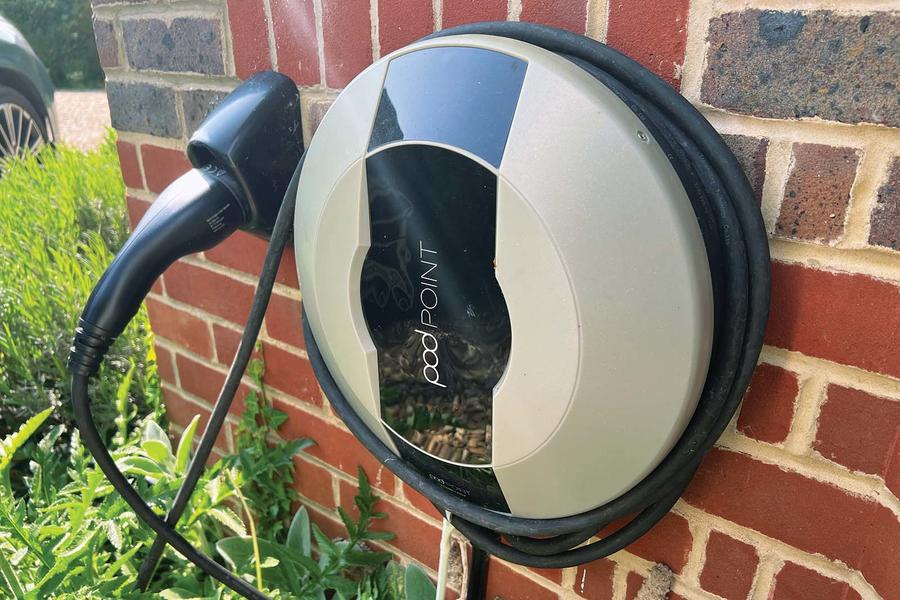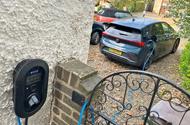With so much choice, it’s hard to know which home charger is best value. Here’s our guide to the best five
With the debate about public electric car charging infrastructure still raging and the demand for EVs becoming ever greater, spurred on by the ULEZ expansion and the introduction of clean air zones, it’s often overlooked just how many motorists want to avoid the chaos and plug their EV in at home.
Happily, this is becoming more of a priority – evident in the UK government’s legislation that stipulates all new-build houses, as well as flats with parking for more than 10 cars, must have electric car charging facilities.
According to Autocar’s sibling title What Car?, there are currently around 400,000 home and workplace chargers available in the UK, with 80% of EV owners choosing to charge at their own abode.
These figures were no doubt helped by the fact that the government would provide £350 towards the cost of having a charger fitted at home, but this is no longer available in quite the same way. To install a home charger now costs anything from around £400 – and can cost more than £1000 in some cases.
As well as different prices, they also charge at various speeds – anything from 3.6kW to 22kW. This, however, depends on whether your building has single-phase or three-phase power.
In the standard single-phase system that most residential properties have, you’ll be able to charge up to around 7kW. Properties with three-phase power can cope with a 22kW charger.

To get the best bang for your buck, we’d recommend a 7kW charger, which will be able to charge your car overnight. For example, a Volkswagen ID 3 will take around 10 hours to charge at one.
With so many available on the market, however, which ones are the best for value, service, reliability and customer satisfaction? With findings from What Car?’s best home charger survey, let’s break down the top five.
1. Pod Point
It’s good news that Pod Point is one of the UK’s largest providers of at-home EV chargers, because its chargers are easy to use, reliable and quite affordable to buy. Gaining the highest score for value, nine out of 10 chargers cost £750 or less overall.
Pod Point scores well for service, too, with 98% of chargers installed in less than three months, and 85.7% of owners said they were very happy with their chargers in the What Car? satisfaction survey.
2. Hypervolt
Founded in 2018, Hypervolt offers chargers designed and built in the UK and they are available as stand-alone units or with fitting. The chargers tended to be pricier than average, with 35% of What Car?’s survey respondents paying more than £1000 for the unit and installation. Six in 10 paid more than £750.
However, Hypervolt scored the highest satisfaction rating of all brands in the survey – at 93% – thanks to prompt installation.
3. Myenergi
Myenergi has grown exponentially since it introduced itself to the UK market in 2017 with its Zappi charger – the first to be able to charge an EV using electricity gathered from solar panels.
Since then, its network has amassed 3000 Zappi chargers with an impressive satisfaction rating of 90%, while 85% of respondent’s chargers were installed less than three months after ordering. However, high purchase and installation costs let it down slightly. Just under half (44%) paid between £750 and £1000, and 26% paid over £1000 for the system.
4. Easee
Norway-based Easee exports its chargers, which have been built to adhere to UK regulations. All units were fitted in less than three months, earning it a rating of 89% for customer satisfaction. In the experience of those who responded to the survey, the units were also quick to respond and easy to use.
Again, however, it let the side down when it came to purchase and installation cost, with more than half of the installations in What Car?’s charging survey costing between £750 and £1000, and 20% costing more than £1000. There are no controls on the pod itself, because customers use an app, which we found to be easy and intuitive to operate.
5. Rolec
Electrical equipment specialist Rolec has been designing and manufacturing EV chargers for over a decade, with experience alongside firms such as MG and the NHS. Cost was on this company’s side, with a third of survey respondents paying between £200 and £500, while only 25% paid £750 to £1000. Almost all chargers were installed within three months but, when we tested it, it took five months longer than that.
The charger itself is controlled through a third-party app called Monta, which is clearly laid out and easy to use. The front fascia of the charger can also be customised to make it more aesthetically pleasing.
Source: Autocar
